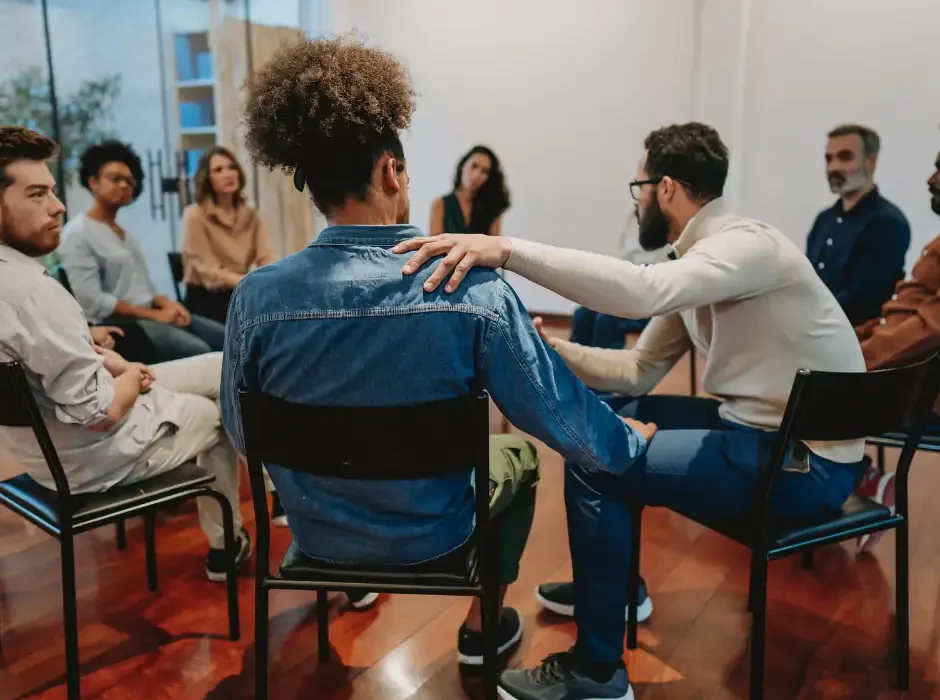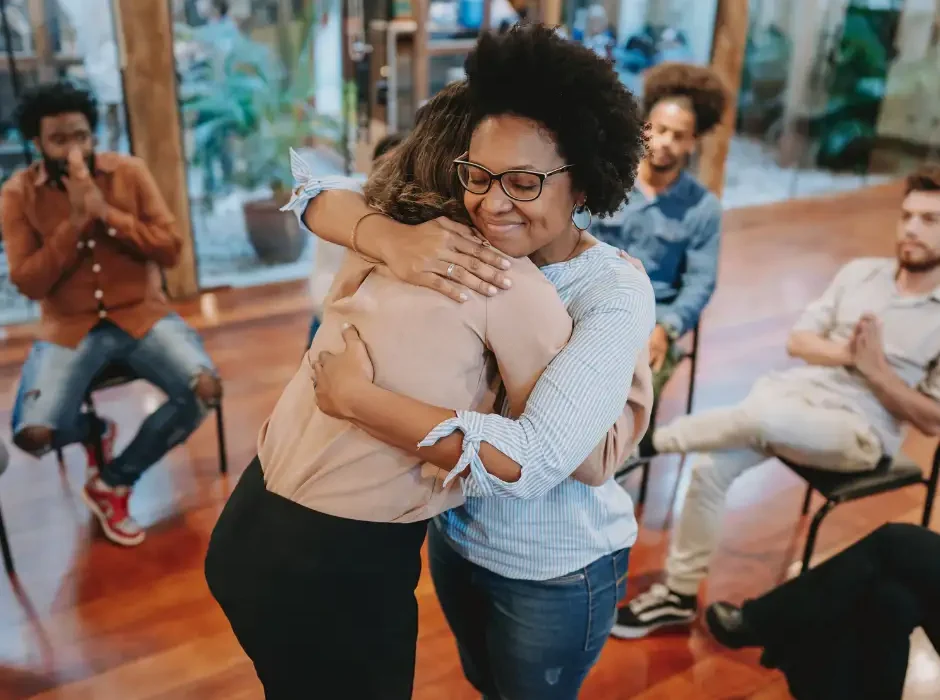The Overlap Between Sexual Assault and Human Trafficking
Sexual assault and human trafficking are deeply interconnected crimes—both rooted in power, control, and the exploitation of vulnerability. At The Landing, we regularly work with survivors who have experienced both sexual violence and trafficking, often beginning in adolescence or even childhood.
Raising awareness of this overlap is essential—not just for service providers and advocates, but for anyone working to support survivors or prevent exploitation. By understanding how these issues intersect, we can better support healing and build systems that truly protect.
Sexual Assault and Human Trafficking: How They Connect
1. Both Are About Power and Control
At their core, both sexual assault and human trafficking are not about sex—they’re about dominance, coercion, and stripping someone of their autonomy. In trafficking situations, survivors are often repeatedly assaulted as a means of control, fear, and profit.
2. Sexual Assault Is Often a Tactic Used by Traffickers
Traffickers use sexual violence to:
- Break down a person’s sense of self-worth
- Force compliance through fear or trauma bonds
- Punish or “train” victims for future exploitation
For many survivors, rape is not a one-time event—it’s ongoing and used as a tool of manipulation.
3. Survivors Often Don’t Use the Word ‘Trafficked’
Because of how trauma works, survivors might only identify with the experience of sexual assault or abuse, not realizing or naming that they were trafficked—especially if the trafficker was someone they knew or trusted.
The Statistics Speak Loudly
- 9 in 10 survivors of trafficking report being sexually assaulted while being trafficked.*
- According to the U.S. Department of Justice, up to 90% of trafficked youth experience repeated sexual violence.*
- In Texas, where The Landing is based, youth of color and LGBTQ+ youth face higher risks of both trafficking and sexual assault.*
These numbers highlight that you can’t talk about trafficking without also talking about sexual violence.
* “Sexual Assault Awareness Month: How Does Human Trafficking Fit In?” Polaris, 2023, https://polarisproject.org/blog/2023/04/sexual-assault-awareness-month-how-does-human-trafficking-fit-in/. Accessed 28 Mar. 2025.
* “Sexual Assault of Young Children as Reported to Law Enforcement: Victim, Incident, and Offender Characteristics.” Bureau of Justice Statistics, July 2000, https://bjs.ojp.gov/library/publications/sexual-assault-young-children-reported-law-enforcement-victim-incident-and. Accessed 28 Mar. 2025.
* “Sexual Violence Statistics.” Fairfax County Department of Family Services, https://www.fairfaxcounty.gov/familyservices/domestic-sexual-violence/sexual-violence/statistics. Accessed 28 Mar. 2025.
How The Landing Supports Survivors of Both
At The Landing, we recognize that healing is not linear—and that each survivor carries layers of trauma. That’s why our programs are designed to be:
- Trauma-informed: We create safety, build trust, and prioritize survivor choice at every step.
- Survivor-centered: Each person guides their own path to healing—we’re simply there to walk alongside them.
- Long-term focused: We don’t place limits on care. Survivors can return to our Drop-In Center or advocacy programs when they’re ready.
Whether someone comes to us identifying as a trafficking survivor, a sexual assault survivor, or both—we meet them where they are, with compassion and dignity.
What You Can Do
- Learn the signs of both trafficking and sexual assault
- Support trauma-informed organizations like The Landing
- Speak up against victim-blaming and myths around trafficking
- Donate or volunteer to help us continue this vital work
👉 Support our mission here
We Can’t End Trafficking Without Addressing Sexual Violence
Both trafficking and sexual assault thrive in silence and stigma. By shedding light on the connection between the two, we take one step closer to ending both.
Together, we can create a world where survivors are believed, supported, and empowered—and where no one has to suffer in the shadows.


